Lessons from the Damned, 2018; or Why We Cannot wait for Tenure to Insist upon our Dignity, Respect, Power, and Value
By Guest Contributor on November 13, 2018By. Dr. G & Dr. Kimberly S. Love
“The slaves who were ourselves had known terror intimately, confused sunrise with pain, & accepted indifference as kindness.” —Ntozake Shange, Sassafrass, Cypress and Indigo
“While I revise my courses often, one thing remains the same, something I learned especially from the Black feminist tradition—I always honor the multivocal, intellectual shoulders on which I stand. And I ask my students to always do the same…Mistakes are going to be made, to be sure, and some things require our urgent attention. But if we took a page out of Toni Cade Bambara’s book, we’d do less harm to the most vulnerable communities in our world.” —Heidi R. Lewis, “Not All Speed Is Movement”: Toni Cade Bambara and the Black Feminist Tradition”
We write this piece as two untenured junior faculty. We are Black Queer Feminists, serious about our call to research, service, and teaching. We are not safe. And it is not because we do not have tenure that we are not safe. We are not safe because we are Black radical thinkers and professors who refuse to wait for the right time to point out the anti-Black, transphobic, xenophobic, and the list goes on… wrongs of this time. We write this because we cannot wait for tenure to say it. It is necessary for now!
We write this piece to add to the collective record of institutional harms as documented by Black feminist scholars like Barbara Christian, Beverly Guy-Sheftall, Cathy J. Cohen, Robin D.G. Kelley, Barbara Ransby, Aishah Shahidah Simmons, E. Patrick Johnson, June Jordan, Alexis Pauline Gumbs, Joy James, Brittney Cooper, Charlene Carruthers, Mark Anthony Neal, Ntozake Shange and a whole host of other Black feminists who have spoken out in times of crises. Our Black queer feminist ancestor Ntozake Shange calls us to recognize the cyclical nature of radical struggles for liberation. Shange asks us to reexamine how we survive and consider that there is more for us to manifest than survival. Shange calls us to sing out the nature of our oppression in all the spaces we inhabit–wherever and whenever we are located.

Heidi R. Lewis
This is what Dr. Heidi R. Lewis did on October 29th, 2018 when she resigned as Director of Feminist & Gender Studies at Colorado College. We believe that it is in the spirit of Ntozake Shange that Dr. Lewis left her position. Dr. Lewis provides a living testimony of a commitment to fully living and being in the academy (or perhaps this could be some other institution/field). For us to live out that commitment in our own lives, it means being Black, queer, feminist and ALL of the other things that we are or have yet to become. We navigate this academic career with integrity and a deep love for knowledge. We are tired of shrinking ourselves to be here! We are tired of holding our tongues out of politeness because our colleagues are not ready to ask certain questions and are not ready to accept certain answers:
Colleague: Can I touch your….?
Answer: NO!
What we have been doing to fit our bodies in these institutions is killing us and we WANT TO LIVE! And not even tenure is worth our Black joy. When Dr. Lewis was asked why she resigned from her position, her Facebook response was, “No link to share. It’s what it always is.” And we knew and know deeply, exactly what she meant. We didn’t need her to give us the juicy details about why she, Black feminist, no longer felt she had the wherewithal to be at Colorado College. She didn’t need to name the macro and microaggressions that we know to be the daily grind of Black living and being in the academy and all over the globe.
These microaggressions that we refer to can be expected when an institution commits to diversity in vigilant ways, such as at our home institution at Williams College. As you can see from our national reports, we greatly outperform peer institutions in our commitment to “diversity.” We are an institution that serves a student population that is almost 50% students of color! We were part of a wave of cluster hires aimed at recruiting “diverse” people to campus to teach students of this future and later generations.
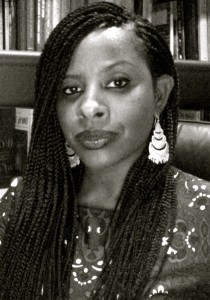
Tamura A. Lomax
Yet and still, Dr. Lewis’s resignation, and our collective experiences, demonstrate how colleges and universities have not made structural changes to create environments in which Black, Brown, disabled, poor, queer people,[1] and our work can thrive. Through various isolating tactics, academic institutions can dull our awareness of the grave conditions under which we are expected to perform. Dr. Tamura Lomax, founder of The Feminist Wire, exposes these conditions, especially those that impact Black women, in her article, “Black Women’s Lives Don’t Matter in Academia Either, or Why I Quit Academic Spaces that Don’t Value Black Women’s Life and Labor,” and in her latest book, Jezebel Unhinged.
When confronted with the devaluation of Black, Brown, and queer people, college and university leaders often suggest more initiatives and tactics that place transformation on the horizon and real harm beyond the scope of the academy. In effect, we are faculty at war with communities at work and at home. Dr. Mel Michelle and Dr. Shannon J. Miller pose timely questions in their recent article, “How Does It Feel to Be a Problem?A Conversation between Two Feminist Black Queer Femme Chairs.” They ask: “How do we live what we teach? How do we come into and stand in our power? Both in the institution at work, and when we’re at home, without having to give up on liberation?”
Last week, we took a walk along the Hoosick River to get some calm. When we returned to our car, it would not start. We quickly located a local Williamstown car shop/towing company, and the employee confirmed that he could tow our car to the shop and drive us one and a half miles to our home in Williamstown. Below we offer separate and intertwined accounts of that morning:
A small dose of awareness reveals that the surrounding population simply hate that we have arrived.
Mechanic: Where are you from? I know you’re not from around here. [I have California plates. I have Williams college alumni and faculty sticker.]
Dr. G: We actually both reside in Williamstown.
We walk to his truck and get in. It’s cold.
I exchange as few words as possible. Not my way, but the way here. The way to move without moving.
Mechanic: Are you students?
Dr. G: We are both professors.
Mechanic: Williams, that’s a nice place to work?
Dr. G: Yes, it is.
We pull up to the car shop.
Mechanic: You all need to call a car to pick you up.
Our neighbors renege on services when confronted with who we are: Black people. Queer people. Trans people. Asian people. Palestinian people. Young people. And the list goes on.
Mechanic: I’m not a taxi cab service!
Dr. Love reminds him that on the phone he said he’d take us home. We are running late for
meetings and office hours now.
Us: Confused (but not)
He and Dr. Love argue, and he calls us “ball busters.”
Our neighbors want us to justify and to be continually justifying our being. To explain why we live just around the corner.
Mechanic: I can take your car somewhere else or tow it to your house.
Why do we actually exist here?
Eat here? Worship here? Drive here? Be at the river here. What are you doing here, our neighbors literally ask.
We opt for the crib.
He leaves. The manager or owner exits the shop and approaches us.
I am not supposed to be here. That much is true.
The manager or owner apologizes for the mechanic’s behavior. He then says that the company will happily fix the car and carry us home. I thank the manager/owner and explain to him that I no longer trust them to repair my car. I ask for my car, myself, and my partner to be towed home.
The same mechanic who drove us to the shop is ordered to drive us home. So much for not being “a taxi”! I understand his frustration in this moment. He shouldn’t have been the one asked to drive us home after such a conflict.
I hope he chooses the mountains to sink me. Not the river. It’s too damn cold in the Hoosick.
We arrive home. I ask for how much I should write the check.
Mechanic: I’m not taking a check from you. I don’t trust you. I don’t like you.
I remember to have no fear because I am afraid.
Us: But you and your manager said you take checks.
Dr. G: I don’t have cash.
Mechanic: Well then, I’m taking your car back.
And then I go to work and pretend to read Hemingway.
We share our two very different ways of processing the very same account as an enactment of a Black Queer feminist lens, that is, the ability to understand the multiple ways that an event may be interpreted so that you are able to move with awareness, however it is you decide to move–if and when you decide to move. We believe that we, at Williams, are experiencing our own kind of backlash, a response to the commitment and work the college has done in the name of creating and sustaining a more equitable Williams. What we are confronting is not much different from what we are experiencing as a US citizen or not, in a larger society, that is in conflict and is struggling to hold onto its moral and ethical center. We are living the backlash of a National and global push for liberation by and for Black, Queer, Transgender, Poor, Feminine/Femme people, and our Allies.
We write this as two of the many faculty, students, and staff of color around the globe who trust and know what it always is. We know-we know, Dr. Lewis. And we believe you. We stand with you and all Black faculty across the globe who are attempting to be free right now! Our Black feminist lessons empower us as we refuse again, this time, to mistake indifference for kindness or pain for the sunrise. We know ourselves as we know Audre Lorde. We collectively affirm “the yes within ourselves, our deepest cravings.” We know ourselves and we know June Jordan, we are the unrelenting echo of June Jordan’s holler, “Wrong is not my name.” Wrong is not OUR name!
We write this to reawaken in our collective Black Radical Feminist Imagination Lessons From the Damned. We close this piece with prophetic wisdom from the Black Feminist collective, The Damned. Read these words. Hold onto these words as they evoke the radical WE–all that we carry in our collective diasporic Black Feminist consciousness:
“We, the authors, were the outcasts in our families, and being poor blacks made us the outcasts of an entire white capitalist society. Our families didn’t dig our stubborn and lonely stands. When our parents weren’t around to divide and conquer us with special privileges and money, we got along real good with our brothers and sisters. But because we didn’t bite for those little goodies and extras, our parents grew to hate us. Our resistance was not in their interest or that of the Master whose ways and ideas they fully accepted… All of the authors have in common a deep resistance to being brainwashed. Some of us are more stubborn than others. We sell out here and there, but always we return to resistance and rebellion.” (Lessons from the Damned, by The Damned, 1973)
[1] and all kinds of othered people
Dr. G is a shape-shifting Black Queer Feminist nerd; an Afro-Future, freedom-reaming, rhyme slinging dragon slayer in search of a new world; a scholar, poet, facilitator, filmmaker; and an Assistant Professor of Women’s, Gender and Sexuality studies at Williams College. Kai is a proud member of Black Youth Project 100 (BYP100) and sits on the healing and safety council.
Kimberly S. Love is a storyteller and Assistant Professor of English at Williams College.
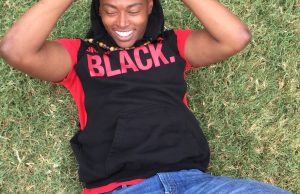
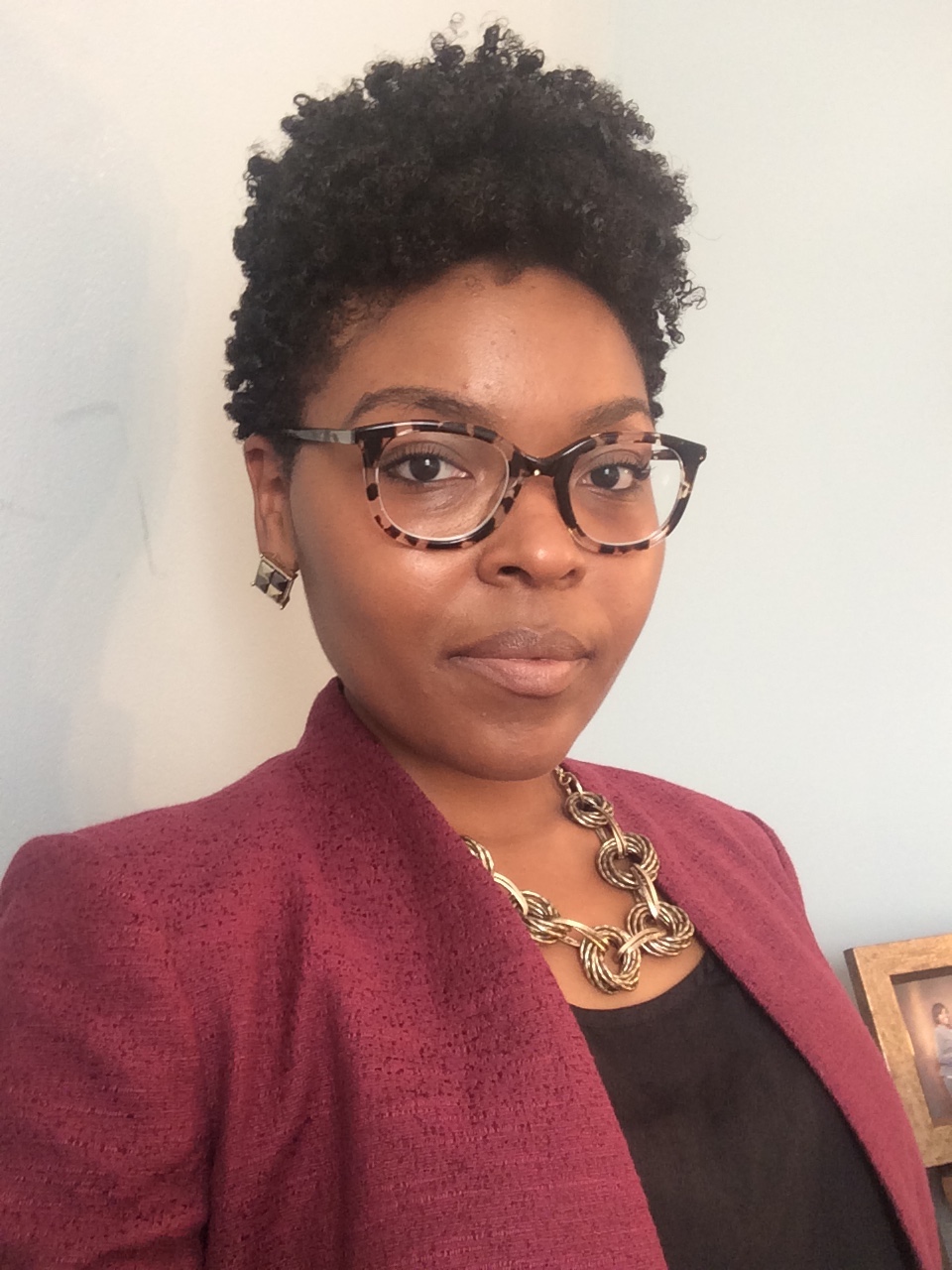
We will share more about this collective as the weeks roll by, but for now, you can find out more about The Damned Collective Here:
Email: [email protected]
IG: The Damned (damned.the)
Twitter: The Damned (@TheDamned13)
#doitfortheDAMNED #doitfortheDAMMM
You may also like...
1 Comment
All Content ©2016 The Feminist Wire All Rights Reserved

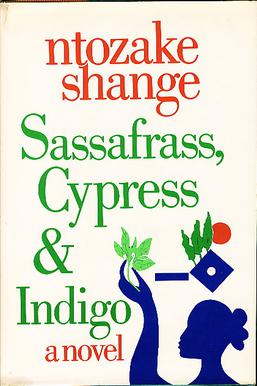
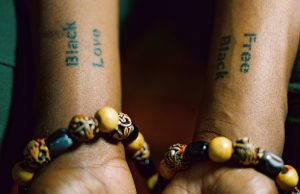



Pingback: Record Assignment Desk : EphBlog